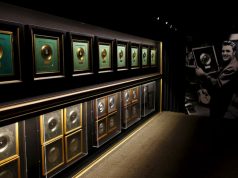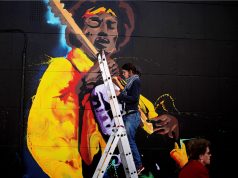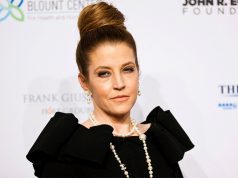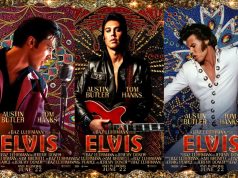Freddie Mercury (born Farrokh Bulsara in 1946) died on November 24 30 years ago. A prolific songwriter, arranger and music producer, a consummate theatrical entertainer and one of the 20th century’s best-known lead singers, Mercury fronted Queen from 1970 until his death in 1991.
Artistically, he challenged many of the prevailing pop and rock parameters, willing to take musical risks and happy not to be part of the mainstream. He fearlessly pushed artistic boundaries, believing in the spontaneity of live performance: every show was different.
The composer
As a composer, Mercury drew on an eclectic range of genres. He wrote songs with poetic and heartfelt lyrics, witty metaphors and memorable melodies, with Queen drawing influences from The Everly Brothers, the Beatles, Jimi Hendrix, Pink Floyd and the Beach Boys.
Mercury’s 1979 composition “Crazy Little Thing Called Love” pays homage to Elvis Presley. In the song, Mercury subtly models aspects of Presley’s vocal tone and rockabilly styling in the catchy chorus.
He gives us just a hint of his vocal range in the bridge, on the lyrics “she gives me hot and cold fever” where Mercury effortlessly uses an octave yodel.
In 1975’s Bohemian Rhapsody, perhaps Queen’s most famous song, Mercury took genre crossing to a new level. This six-minute epic is unrivalled in complexity of form, lavish production, vocal layering and the sheer number of choral overdubs.
The song, which topped the British charts for almost nine weeks, was described by Mercury as a “mock opera” .
The singer
Technically masterful, Mercury possessed a voice that was powerful, agile, and highly expressive. A lyric rock tenor with over three octaves in range, Mercury could belt into his upper register with his signature fast vibrato, or use a controlled pure falsetto with smooth legato phrasing.
Strong musicianship, excellent pitch and vocal control enabled Mercury to draw on a broad array of note choices, dynamics, tone colours and vocal effects. His vocal timbre could depict a delicate vulnerability, especially with his falsetto, or use dynamic extremes to accentuate lyrics with screams and growls.
Mercury demonstrated his versatility, genre crossing and creative exploration on the 1985 song Living On My Own.
Here, he employs scat singing and the opening syncopated repetition of a single note hints at Ella Fitzgerald’s influence. It is a driving, high spirited and fearless vocal solo. Mercury solos again at the end of the song with a loose vocal reference to Duke Ellington’s It Don’t Mean a Thing (If It Ain’t Got That Swing).
The performer
Queen’s appearance at the historic Live Aid Concert at London’s Wembley Stadium in July 1985 remains one of the greatest rock performances of all time.
Mercury and band were in stellar form, having just completed a world tour for their album The Works, recorded in 1984. When the entire crowd of 72,000 joins Mercury in beating out the rhythm to We Will Rock You, it is electrifying.
Further evidence of Mercury’s masterful stagecraft can be found in a bootleg video of Queen performing in Sydney in 1985.
Twelve minutes into the footage, Mercury slowly struts to the piano and improvises a segue into Somebody to Love in a gospel style with a call and response with the audience.
His years of touring experience provided him with an arsenal of stagecraft prowess: strutting, holding poses, dressed in his glam rock style, with white spandex.
Audiences adored his showmanship and flamboyance.
The influencer
30 years on from his death, Mercury’s incredible compositions are still part of the soundtrack of our lives.
Somebody To Love was used in the films Happy Feet (2006) and Ella Enchanted (2004). Lady GaGa coopted her name from Queen’s Radio GaGa.
Ceelo Green attributes his falsetto usage to his collection of Queen albums.
Kurt Cobain listened to Queen’s News of the World on 8-track.
Katy Perry has acknowledged Mercury as a major influence, performing Queen’s Don’t Stop Me Now during her Hello Katy tour in 2009. P!nk included the iconic stadium songs We Are the Champions in her tour in 2019.
Many filmmakers have told his story: Bryan Singer’s film Bohemian Rapsody (2018) is joined by a suite of documentaries. Next month, the BBC are releasing a new documentary, this time looking at his tragic death from AIDS at just 45.
30 years on, Mercury is remembered as a powerful songwriter, filled with on-stage magnetism, creativity and intelligence, a hard work ethic and a passion for perfection.![]()
Leigh Carriage, Senior Lecturer in Music, Southern Cross University. This article is republished from The Conversation under a Creative Commons license. Read the original article.










